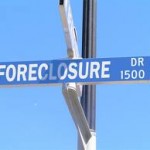 Wisebread publishes an article by Antar Salim (an MBA who teaches business at the Rasmussen College School of Business, MN) that mounts the classic argument against investing in residential real-estate:
Wisebread publishes an article by Antar Salim (an MBA who teaches business at the Rasmussen College School of Business, MN) that mounts the classic argument against investing in residential real-estate:
Depending on your sources, the average home price in the U.S. at the beginning of the millennium was approximately $160,000. Today, that same home will sell for approximately $200,000. If we explore the change in home prices, the average home increased by $40,000, or 25% over the decade. If you do the math — considering present value, future value, and time — this equates to a 2.2% compound increase year over year. Congratulations, we’re now in the positive rates of return.
Just one moment. We haven’t considered the rate of inflation, which we know historically is greater than 2.2%. Not only that, we haven’t taken into account that it cost us approximately 5% to 6% a year to borrow the money to purchase the home.
Granted, we all have to have a roof over our head, and I’m not suggesting that real estate is a bad investment, but it is my personal opinion that if your home is your best and biggest investment, then you may be in trouble.
Now, I agree with Antar’s last point: if your home is your best and biggest investment, then you are in trouble.
Regardless, here are the basic errors in Antar’s thinking:
1. Let’s say that the 2.2% compound growth rate will hold true for the next decade; this is an across the entire country average. Can you think of some areas that will grow faster than others? Look at your own town: can you name some suburbs that you can be pretty sure will grow faster than average, and others that will do worse? Of course you can.
2. Are you going to invest the entire $200k required for the house or are you going to borrow 80% from the bank? You are going to invest just $40k and make more than 25% profit on the entire property; that’s $50k+ back (less closing costs) on your $40k investment! Over 10 years, that smells more like a 7++% compounded return to me.
3. You are going to pay 5% to 6% (less 20% for the portion of the house NOT financed i.e. your deposit) of that return to the bank in mortgage interest.
4. You are going to claim tax deductions on the mortgage interest.
5. Here’s an investment that makes money by saving you money … because you don’t have to spend on rent elsewhere!
Not only is this such a good deal for you, even taking into account that 2.2% is a really crappy ‘look ahead’ estimate for housing over the next 10 years, that you should not just do it once …
… you should do it (at least) twice, making the second one a true rental (and, if it’s new, you may even be able to claim some additional depreciation allowances on your purchase).
Time to go back to (business) school 😉





All good points.
It is surprising how many articles/posts against real estate fail to identify all of the positive attributes – I have lost track of the number of times I have seen people compare the total return on the stock market (i.e. including dividends) against the capital appreciation of property (i.e excluding rental income or rent saved).
It is also suprising how many articles get written which oversell property. Real estate agents are excellent at quoting yields which assume 100% occupancy, no outgoings at all and which are calculated on the purchase price (i.e. ignore closing costs).
I’m having trouble following your steps, particularly points 2 & 3. It would be much better if you worked out the math and came up with an actual return on investment percentage.
You are also leaving out property taxes, repair, and maintenance costs, not to mention the opportunity cost of having $40k tied up in your house as opposed to some other investments.
So far, I’m not convinced by this post that real estate is a good investment.
@ cm – yes, it’s important to include all costs; the opportunity cost as you point out applies to both R/E and stock, but in one case (R/E) you are putting up, say, $40k, in the other (stocks) you are putting up $200k.
This post was to point out “the basic errors in Antar’s thinking” … if we were to do a true ‘apples to apples’ comparison, we would have to allow you to take a margin loan on your stocks, as well (this means, you put up $100k and the margin lender puts up the other $100k).
Few thoughts:
If it’s your “Home” the place you sleep at night then it’s not an investment is it? Everyone needs a place to call it a day. Now you could rent, but that’s will not return much…. Sarcasm.
If it’s a house you own and include the cash low from the rent and the tax breaks ect… then tell me it does not make sense to buy real estate as an investment, not just appreciation.
Time to go back to (business) school I agree…
Adrian, I am interested in starting in residential real estate investing. Actually, I purchased a foreclosure home already. I’m currently renting an apartment– do you have any thoughts on whether my next move should be to buy my 1st real home (to live in) or continue to purchase investment properties?
Thanks!